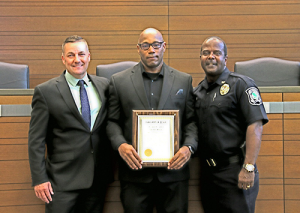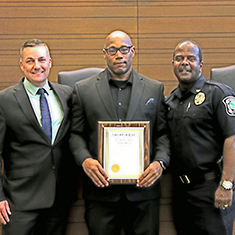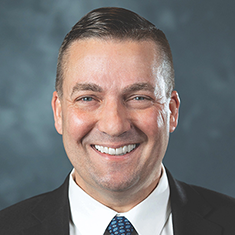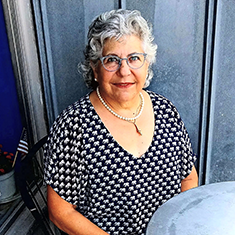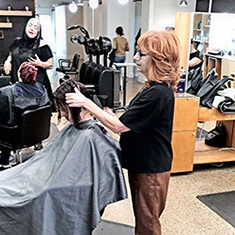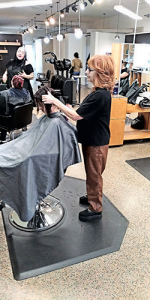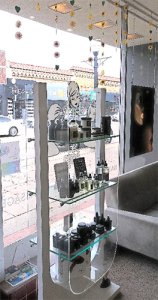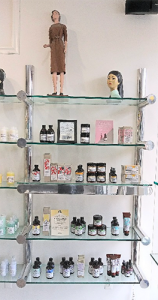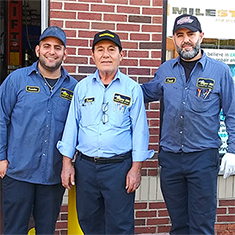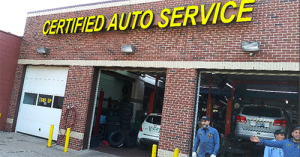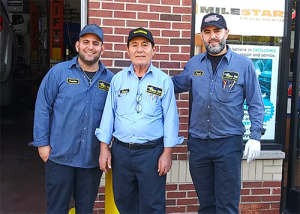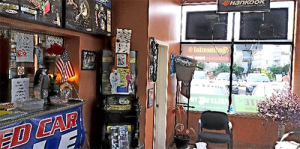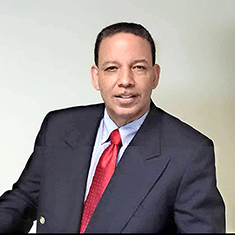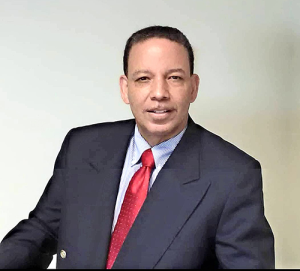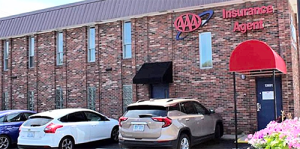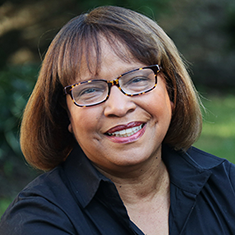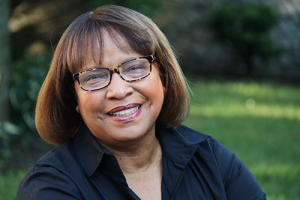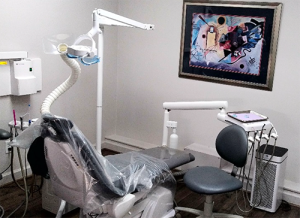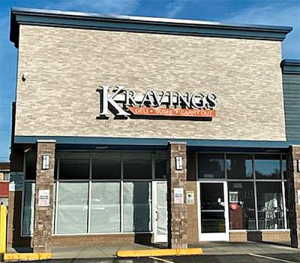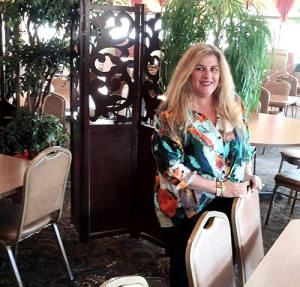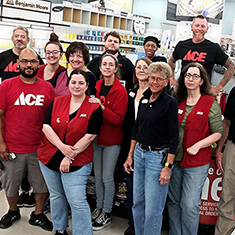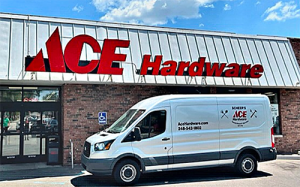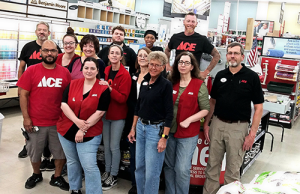By Jenn Goeddeke
 MEETING CINDY WILSON, THE OWNER OF INNOVATIVE HEARING SERVICES IS LIKE A BREATH OF FRESH AIR! WE RECENTLY MET FOR COFFEE, WHERE SHE REFLECTED ON HER SUCCESSFUL CAREER AS AN AUDIOLOGIST IN A GENUINE, HUMBLE, AND PROFOUND WAY.
MEETING CINDY WILSON, THE OWNER OF INNOVATIVE HEARING SERVICES IS LIKE A BREATH OF FRESH AIR! WE RECENTLY MET FOR COFFEE, WHERE SHE REFLECTED ON HER SUCCESSFUL CAREER AS AN AUDIOLOGIST IN A GENUINE, HUMBLE, AND PROFOUND WAY.
Wilson is enjoying her semi-retirement, having closed the physical doors of her business on June 30th of this year. However, Wilson feels she has plenty more to accomplish in life as she transitions into retirement, and shares details of her career, plus some great advice for those with any type of hearing loss issues.
What is involved in being an audiologist?
My niche has been auditory processing evaluations, which are a special series of tests that look at what you do with what you hear. For example, how’s your ability to sequence; how do you process noise; or how is your auditory memory? There are lots of skills to analyze. If the evaluation could be done without a break, it would take less than two hours. However, most clients need a break.
Four factors overlap: Attention; language; processing; cognition. By the time a client gets to me, there was most likely a problem. I have specialized in working with children diagnosed on the spectrum, too.
What inspired you to enter this field of work?
There were multiple factors. The specific degree I wanted was not offered in Michigan. When I first went to college, I knew that I wanted to work with children. Originally, I took courses in Special Education, then I transferred to regular education classes. But I was not enjoying the classes. So, I took an exam offered by MSU which matches a person’s skills and interests to careers. Then I went through the coursebook, and selected classes based on the top two categories. I made a wonderful choice to study audiology! I lived with a mother who had hearing loss, plus I have a hereditary hearing loss condition for which I had surgery.
How did your career progress?
I started my career at Children’s Hospital in Detroit and moved to private practice in 1999 after my husband died. The business name changed from Innovative Therapy & Hearing Services. I gained a reputation for being able to test the kids nobody else could test! The other population I have served is those who need hearing aids. This involves fitting them, making adjustments, and coaching my clients throughout. I am proud of the work I have done for my patients. I have done a good job and I have loved my career!
What have been some favorite aspects of your career?
Mostly, the satisfaction of helping people in a personal way and forming relationships. I say this because I have worked with entire families, from birth on up to old age. For example, when I have a patient who is a baby, I am naturally seeing the parents also. It’s not just about giving 15 minutes for an appointment. I have been able to decide how to spend my time. Of course, that’s a luxury some don’t have, due to financial demands. I have enjoyed making a difference in patients’ lives.
Have there been any aspects that you have disliked?
I wasn’t cut out to run a business, as I dislike being the boss! Fortunately, I had an employee named Tracy Ravary with me the whole time and she assisted me in all ways. Tracy paid bills, handled the paperwork, and was also my tech with hearing aid check-ups. She is wonderful!
Do you have any advice for those who may need help with their hearing?
I would recommend you visit a qualified audiologist. Not everyone realizes they have hearing loss. Many came to understand this due to the masks worn throughout the Covid19 Pandemic, as they could no longer recognize speech without a visual cue. There may be an aspect of sticker shock, as some aids may cost three to four thousand dollars. I encourage people to consider it as a daily cost, which over three or four years would amount to less than a daily cup of coffee. Additionally, I emphasize that the patient is paying for a high level of technology, plus analysis and customer service.
When should someone reach out to get help with their hearing loss?
Don’t wait for a big problem! It’s best to start wearing a hearing aid when there’s a small issue – then, your brain can adjust more effectively. If you’re not doing well with the hearing aid, go back for modified settings. Or go and see someone else, as a different approach could be night-and-day in results. I know this from personal experience! Possibly, the aid has been adjusted to your Rx level immediately, instead of slowly adapting the strength. The contrast between what you remember hearing, and what you hear today could be so different that everything sounds too loud initially. Modern aids often adjust automatically/electronically, but not all do.
Are there certain ways that people adjust to hearing loss?
Not everyone can adjust at the same pace. There is a lot of grief surrounding hearing loss. I began to ask questions like, “are you here because you noticed a problem, or because your wife noticed?” Often the patient is not feeling it, but the spouse is!
Why did you close your doors?
It became complicated due to what is known as “third-party payers.” I refused to just sell to the highest bidder, leaving my patients to the whim of the world. I needed to know I could send my patients to a place where they could receive a particular type of hearing aid, and it’s not the most common one. I closed my doors on June 30th of this year and gave my patients a list of very competent specialists. It has been disappointing, but I feel good about my choice. I am not fully retired yet, more in transition. I still see some patients, such as pediatric ENT referrals. It’s hard to turn anyone down because I want to help! An alternative is for patients to go to Children’s Hospital for specialized care.
How would someone become an audiologist?
These days, it would require a four-year post-graduate degree, with an undergraduate degree in a health-oriented field. I have a two-year master’s degree and a one-year clinical qualification. I did not need to return for my doctorate later on, as I felt it was unnecessary. You would expect to work with a wider range of ages, from infant through to geriatric.
Would you like to share any additional information or opinions with readers?
Yes, I would like to address over-the-counter hearing aids. There is certainly a big difference in quality. If you have mild hearing loss, it won’t hurt to try this kind of hearing aid. However, the problem is, there’s no evaluation, and no help to figure it out. The counseling part is missing. If the aid is not doing its job, and lands in the drawer, please don’t assume all aids are like that! Hearing aids that I prescribed even had multiple profiles for different experiences, such as music.
Finally, as a segue, Wilson shared information on another of her life passions:
I am a practitioner and instructor of Jin Shin Jyutsu which is light touch energy/healing work to release tension. It is beneficial for the mind, body, and spirit. I have been involved with this for 30 years, and I have a few private patients. I would like to increase my work with this practice.”
We wish Wilson all the best in her future endeavors!
